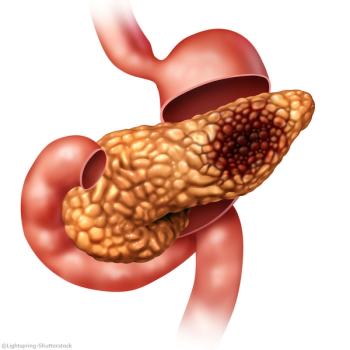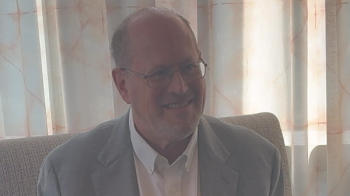
QOL Analysis Supports Everolimus Use in Gastrointestinal, Lung NETs
Treatment of advanced, non-functional gastrointestinal or lung neuroendocrine tumors with everolimus resulted in improved progression-free survival with no relevant differences in health-related quality of life compared with placebo, according to an analysis of the RADIANT-4 trial.
Treatment of advanced, non-functional gastrointestinal or lung neuroendocrine tumors (NETs) with everolimus resulted in improved progression-free survival with no relevant differences in health-related quality of life (HRQOL) compared with placebo, according to an analysis of the RADIANT-4 trial
The RADIANT-4 trial was a phase III trial that included adults with well-differentiated, non-functional gastrointestinal or lung NETs who were randomly assigned 2:1 to oral everolimus or placebo. Previously published results of the study showed that everolimus increased progression-free survival compared with placebo.
“Together with our secondary findings from RADIANT-4, we provide potentially practice-changing evidence that everolimus delays disease progression while preserving overall HRQOL, even with the usual toxic effects related to active targeted drug treatment for cancer,” wrote Marianne E. Pavel, MD, Charité Universitätsmediz in Berlin, Campus Virchow-Klinikum, Berlin, Germany, and colleagues. “As more treatments become available for NETs, with no evidence for optimum sequencing, the decline in HRQOL and utility after disease progression shows the importance of considering HRQOL, along with progression-free survival, as a meaningful and patient-relevant endpoint in clinical trials of advanced NETs.”
HRQOL was assessed as a secondary outcome using the Functional Assessment of Cancer Therapy-General (FACT-G) questionnaire at baseline, every 8 weeks during the study for the first year, and every 12 weeks until study drug discontinuation.
At baseline, 94% of patients assigned to everolimus and 98% of patients assigned to placebo had partly or fully completed the FACT-G questionnaire. By week 48, this had declined slightly, to 83% and 85%, respectively.
The secondary outcome measure for HRQOL was time to definitive deterioration, defined as a decrease of 7 points or greater in the FACT-G total score. Overall, 39% of patients assigned everolimus and 40% of patients assigned placebo had a decrease of at least 7 points. The median time to definitive deterioration was 11.27 months for patients assigned everolimus compared with 9.23 months for patients assigned to placebo (adjusted hazard ratio, 0.81; 95% CI, 0.55–1.21; log-rank P = .31).
The researchers conducted a post-hoc analysis of time to definitive deterioration of FACT-G score and found a significant difference between everolimus and placebo for emotional well-being (median 22.21 months for everolimus vs 17.64 months for placebo).
“HRQOL is maintained in patients treated with everolimus, with no statistically or clinically relevant differences compared with patients treated with placebo,” the researchers wrote. “Indeed, toxic effects seem to be counterbalanced by the higher efficacy (longer progression-free survival) and potentially fewer disease-related symptoms with everolimus than with placebo.”
Newsletter
Stay up to date on recent advances in the multidisciplinary approach to cancer.




































